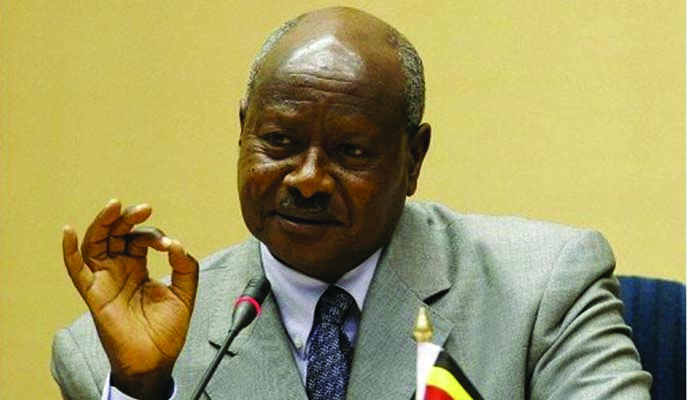
Now that the dust is beginning to settle over the Ugandan elections, where incumbent President Yoweri Museveni won a disputed fresh mandate, it is a time for the Zimbabwean opposition to reflect on what they could have learnt from the East African country.
A very obvious similarity is that the main opposition leader, Kizza Besigye, has lost several times to Museveni, with each episode being more contentious than the previous one and this mirrors the life story of MDC-T leader Morgan Tsvangirai and his quest to seize power from President Robert Mugabe.
Another salient point is that like Tsvangirai, Besigye urged his followers to boycott elections, until there were electoral reforms, something that has not happened in either Zimbabwe or Uganda.
A question that has been asked of Tsvangirai is that after boycotting elections, what next? And his party always claims there is a Plan B, but so far this is yet to materialise.
MDC-T and other opposition parties have been boycotting elections in the forlorn hope that this will embarrass Zanu PF, who will lack legitimacy and then be forced into reforming, but as with Uganda, it does not seem the ruling party has such a conscience and will continue winning by-elections whether the opposition contests or not.
With just over two years to the elections, Tsvangirai and the rest of the opposition should evaluate the efficacy of their poll boycott strategy and if it is not working, then they should be in a position to change and adopt something that works.
To the layman, the poll boycott strategy has so far not worked and unless the opposition parties tell us they have an ace up their sleeves, we can foresee more disputes in the next election, which Zanu PF will swat away as they have always done.
- Chamisa under fire over US$120K donation
- Mavhunga puts DeMbare into Chibuku quarterfinals
- Pension funds bet on Cabora Bassa oilfields
- Councils defy govt fire tender directive
Keep Reading
In Uganda, Besigye and Amama Mbabazi, a former Prime Minister, agonised for a while over the formation of a coalition ahead of the elections and in the end they did not.
Mbabazi’s story has striking similarities with axed Vice-President Joice Mujuru, as they both fell out with their leaders over seemingly innocuous differences with the respective First Families of their countries.
Both Mbabazi and Mujuru are seen as people with connections to the establishment and with some form of gravitas.
Just as Mujuru has hinted at a possible coalition, the opposition should make hay while the sun shines as this opportunity may soon be lost to them.
Zimbabwe’s opposition politics has for long been chracterised by obstinacy and egomania, but if they are serious about future elections, then they should put away their egos and work to consolidate their parties.
The Ugandan election provides interesting lessons for Zimbabwean politicians. If they fail to learn from this, they shall be victims of their own ignorance and maybe rendered irrelevant.











